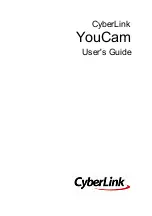
Chapter 4. Red Hat Network Website
53
•
Enterprise
— should be used to manage multiple systems with multiple system administrators. In
addition to the features of the Basic offering, it includes system group management, user manage-
ment, and the
System Set Manager
interface to quickly perform actions on multiple systems.
The
System Entitlements
page allows you to view and change the entitlements for your registered
systems. To change an entitlement, select the entitlement from the system’s pulldown menu and click
the
Update Entitlements
button on the bottom right-hand corner of the page. Click the name of a
system to see details about it. If you need to purchase additional entitlements, click the
Buy them
now
link at the top of the page.
4.4.6. Advanced Search
The
System Search
page allows you to search through your systems according to specific criteria.
These criteria include system details, hardware, devices, interface, networking, packages, and loca-
tion. Type the keyword, select the criterion to search by, use the radio buttons to identify whether you
wish to query all systems or only those loaded in the
System Set Manager
, and click the
Search
button. Yo may also select the
Invert Result
checkbox to reverse your results list.
The results appear at the bottom of the page. For details about using the resulting system list, refer to
Section 4.4.2.
4.4.7. Activation Keys
RHN Enterprise customers can generate activation keys through the RHN website. Each unique key
can then be used to register the RHL system, entitle the system to RHN Enterprise, and subscribe the
system to specific channels and system groups through the command line utility
rhnreg_ks
from
the
rhn_register
package. Thus, channel and group subscriptions can be automated along with
registration, thereby bypassing running the
Red Hat Network Registration Client
on each client
system and entitling each system through the RHN website.
Note
Version 2.7.20 or higher of the
rhn_register
package is required. It is highly recommended you
obtain the latest version before using activation keys.
To generate an activation key:
1. Select
Systems
=>
Activation Keys
from the top and left navigation bars.
2. Click the
create new key
button at top-left.
3. Provide the following information:
•
Description
— User-defined description to identify the generated activation key. To return to
the existing keys, click the
View Key List
.
•
Usage Limit
— The number of times the key can be used to register a system before the
activation key is disabled. Leave blank for unlimited use.
•
Base Channel
— The primary channel for the key.
•
Child Channels
— Channels to subscribe the system to as applicable.
•
Groups
— System groups to subscribe the system to after registering it.
Click
Create Key
.
Summary of Contents for NETWORK - USER REFERENCE GUIDE 2.0
Page 1: ...Red Hat Network Enterprise User Reference Guide 2 0...
Page 14: ...6 Chapter 1 What is Red Hat Network...
Page 42: ...34 Chapter 2 Red Hat Update Agent...
Page 46: ...38 Chapter 3 Red Hat Network Notification Tool...
Page 76: ...68 Chapter 4 Red Hat Network Website...
Page 78: ...70 Chapter 5 Red Hat Network Daemon...
Page 80: ...72 Chapter 6 Using Red Hat Network with Red Hat Linux 6 2...
Page 93: ...Chapter 7 Red Hat Network Registration Client 85 Figure 7 15 Text Mode Welcome Screen...
Page 94: ...86 Chapter 7 Red Hat Network Registration Client...
Page 100: ...92 Glossary...
Page 104: ......
















































